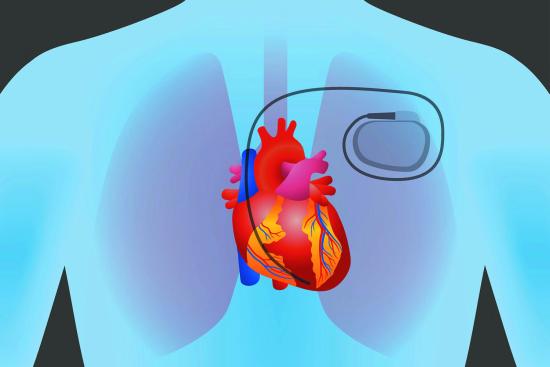Bradycardia is a heart disease characterized by too slow or irregular heartbeat (irregular heart beating). If the heart beats at a rate of fewer than 60 beats per minute, it can cause several problems. The disease can be treated with medication, but it often requires a surgery.
Pacemaker implantation in Turkey is among the most well-known and significant surgeries carried out at our partner clinics.
- People who suffer from bradycardia
- Pneumothorax
- The compartment hematoma
- Relocation of one or more probes
- Infection
- From 30 minutes to an hour
- 95%
Pacemaker placement in Turkey: Price & Reviews
Turquie santé puts you in touch with the best hospitals and clinics in Turkey for the treatment of your cardiological problems. Our partner clinics offer, in addition to the lowest prices, the best cardiological care, such as the installation of a pacemaker or the replacement of heart valves.
The price of the pacemaker varies depending on the country in which you are having the procedure. However, with our hospitals in Istanbul, you can be sure that you are getting the best prices.
A personalized quote for the installation of a pacemaker, as well as a free consultation, is available by clicking on the link below.
Best Clinics with Verified Reviews

- Multispecialized hospital
- 7 operating rooms
- Capacity é of 170 beds

- Multispecialized hospital
- Hospital founded in 2007
- Very good reputation in ENT department
Pacemaker: best treatment for Bradycardia
A pacemaker is an implant that is placed in people who have bradycardia. This cardiac device is used to monitor the heart and send it small electrical pulses if the heartbeat rate decreases.
It is usually placed under the bit below the collarbone and consists of a stimulator and one or more leads that are used to connect the heart and the case. These leads also allow the pacemaker to receive information about the activity of the heart.
How does it work?
The basic principle of the pacemaker is to restore the natural functioning of the heart by reproducing a regulatory mechanism. However, it has two main functions:
- Detection
- Stimulation
The detection function of the pacemaker is used to monitor the heartbeat and its electrical activity. If the heartbeat rhythm is normal and natural, it is not working.
However, if the heart rate is less than 60 beats per minute or stops, the stimulator will send electrical pulses. These electrical pulses are sent from the stimulation lead and are used to induce a heartbeat.
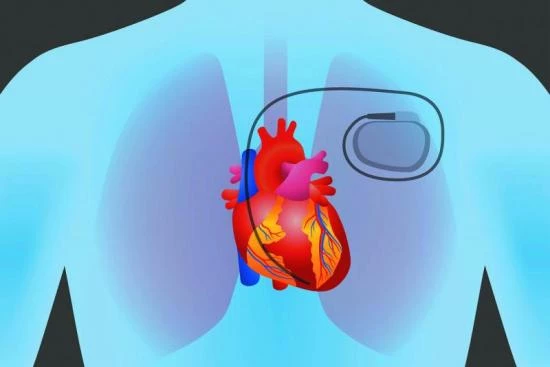
The procedure of the pacemaker implantation
The patient is usually hospitalized for 2 to 4 days for this procedure. It can take place under local anesthesia with light sedation because not very painful. But depending on the patient, it can also be done under general anesthesia.
The cardiologist surgeon makes a cut of about 4 cm under the collarbone to the shoulder (right or left as desired by the doctor or the patient). With this incision, the cardiologist surgeon seeks to reach two veins to use them:
- The cephalic vein
- The subclavian vein
Then he uses an x-ray machine to get a fluoroscopic view to position the probes. After securing them in the heart at the desired location, the cardiologist surgeon checks to see if they are working using an analyzer.
Following this, the probes are attached to the stimulator, which is introduced into the subcutaneous or sub-muscular provided for it.
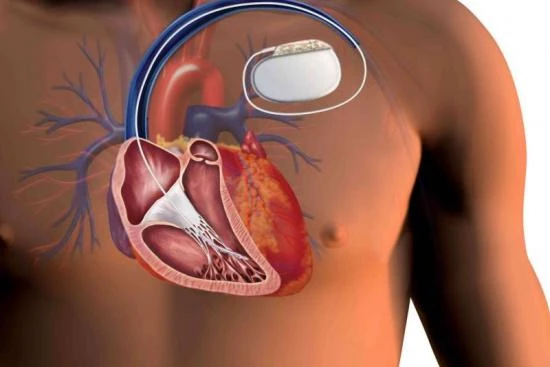
Results of the installation of a heart implant
The patient can usually be discharged the day after surgery after having undergone a few tests such as an EKG or chest X-ray.
The pacemaker shows stable and reliable results and rarely has hardware problems. The results can be seen immediately after the procedure, and if the symptoms persist, it is because they are caused by another disease and not bradycardia.
The heart implant placement has very few complications. However, while complications are rare, they are still serious. Among them we can cite:
- Pneumothorax
- The compartment hematoma
- Relocation of one or more probes
- Infection
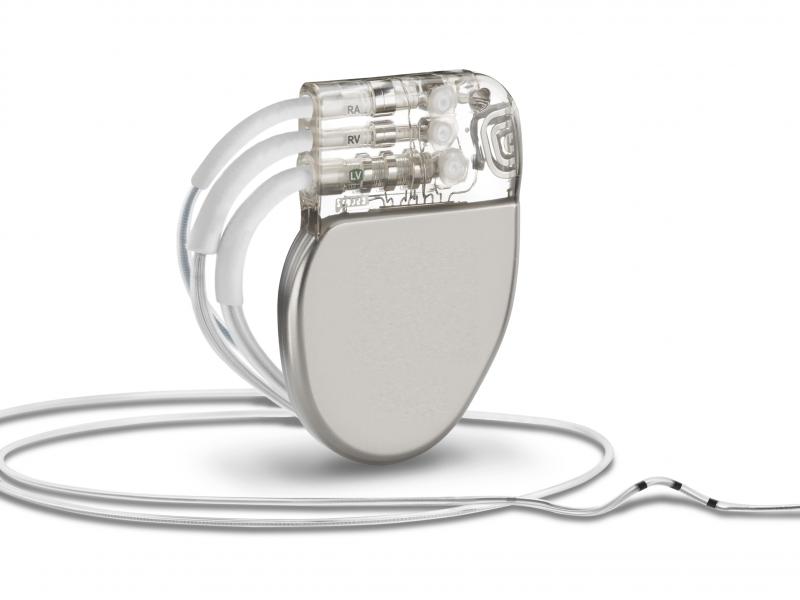
Living with a heart implant: what are the precautions to take?
The pacemaker has almost no impact on your life, so you should forget about it and live with it normally. In your daily life, for example, only devices that can create an electromagnetic field are not recommended.
For phone use, it is recommended that you use the ear that is opposite the pacemaker. You can use other devices like the microwave or the drill without fear.
In addition, you can travel and pass through the porticoes without a problem. However, you should avoid manual metal detectors and always have your cardiac pacemaker card with you.
In short, you can live normally with the heart implant and even travel and practice sports.
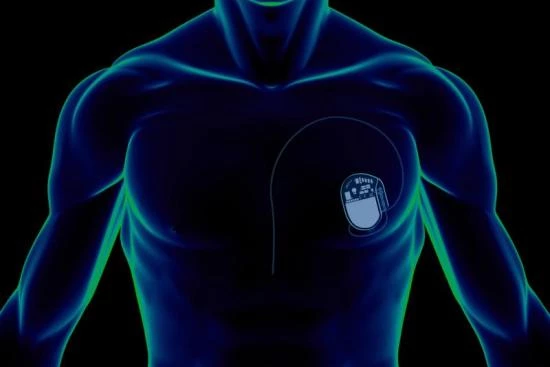
Share this page
At our partner clinics and hospitals in Turkey, the cost of pacemaker implantation varies between 4,000 and 9,500 euros.
For the first three days after implantation, you should avoid moving your arm on the pacemaker side. Any activity involving the arm on the side of the treated area should be avoided, especially during the initial period (the first month following the operation).
Most patients can resume their normal activities in the weeks following implantation. However, it is advisable to follow the doctor's advice regarding strenuous physical activity and to discuss any cardiac rehabilitation plan if necessary.
To find out whether a pacemaker is working properly, it is important to carry out :
- Regular follow-up checks with chest X-rays, ECGs, or telemetry tests
- Symptom monitoring: report any feelings of dizziness, palpitations, or weakness to your doctor.
- Self-monitoring: you can check the pacemaker's operating parameters using an external device.
- Pacemaker alerts: some pacemakers are designed to issue alerts in the case of a malfunction. If you receive an alert, it is important to report it immediately to your doctor.
The pacemaker's lifespan can vary depending on several factors, including the pacemaker's mark and model, how it is programmed, how it is used and cared for, and the patient's health and lifestyle. In general, a pacemaker can stay functional for 5 to 15 years.
Life expectancy with a pacemaker is generally similar to that of normal people. In fact, this device helps to maintain a regular and appropriate heart rhythm by delivering electrical impulses to stimulate the heart when necessary.
